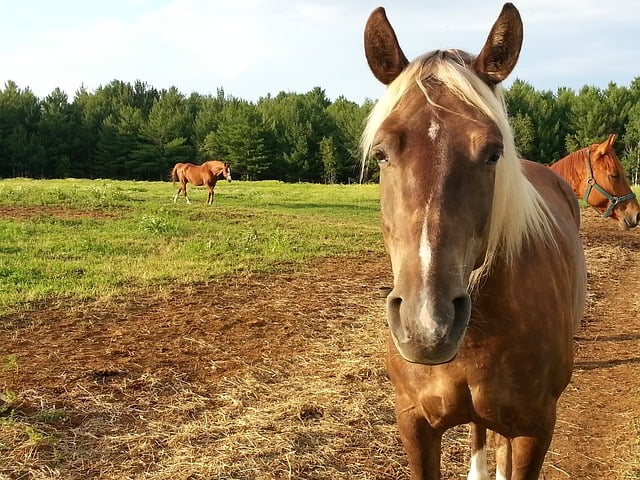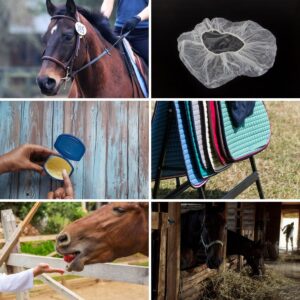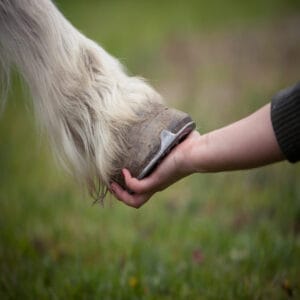Equine Veterinary & Dental Services in Australia specializes in providing horses with life-saving veterinary services and dentistry care. They offer innovative services for the sake of horse health, but their clients also love them for carefully listening to concerns, not jumping to conclusions, and thinking outside the box. So, when a horse came to EVDS with life-threatening symptoms, they weren't satisfied with the easy answer. Thanks to their willingness to dig deeper, they discovered that the horse did not have ulcers like everyone expected. Instead, it had a serious problem that required a healthy dose of Diet Coke.
EVDS posted a PSA to Facebook hoping to educate horse owners on their interesting case. In fact, the equine veterinary service announced that for the second time in as many weeks, they proved that symptoms aren't always what they seem.
It started when an 8-year-old gelding came into their care with a dull coat, exposed ribs, and a lack of appetite. Based on those symptoms, most horse people would assume the poor gelding was suffering from gastric ulcers. It's a relatively common affliction that can affect horses of all ages. Lack of appetite and a dull coat are the most noticeable symptoms, and the 4-8 week treatment would have cost this horse owner an estimated $600.
EVDS, however, recommended a different way forward. They suggested scoping the horse to get a real-time look at what was happening inside his digestive tract. After the standard pre-scoping protocol of fasting for 18 hours, they inserted a camera into the horse's digestive tract. The resulting video revealed that despite the symptoms, there were no signs of ulcers. They did find, however, a dangerous gastric impaction.
According to EVDS,
"Gastric impaction is diagnosed as a hard ball of feed that should have passed after a suitable period of fasting."
Going on 18 hours of no food, the horse's stomach should have been empty. But instead, there was a hard, dry ball of food causing trouble in the digestive tract.
https://www.facebook.com/EquineVetandDental/photos/pcb.3167590149994804/3167590083328144
Gastric impaction isn't as common as gastric ulcers, but the symptoms are confusingly similar. Impaction is caused by several factors including eating feed too fast, eating feeds that tend to swell, eating stalky hay, and chronic teeth issues. The horse in question was fed once daily in a paddock with little grass, and his symptoms and behaviors matched the findings.
With an accurate diagnosis, veterinarians could then move on to treatment. Their recommended treatment plan sounds unconventional, but you can't argue with the results.
EVDS veterinarians advised administering large quantities of Diet Coke over a period of four hours.
"The reason Diet Coke works is that it has a pH of 2.6 from the phosphoric and carbonic acid, so the acid, along with the bubbles, help to penetrate and break up the cellulose fibre impaction."
Through the provided pictures, you can see how the bubbly soft drink worked to dissolve the dry mass of food in record time. EVDS also mentioned that they use Diet Coke, and not regular Coke, because the regular version has too much sugar and could lead to laminitis. They also say there were no negative side effects.
https://www.facebook.com/EquineVetandDental/photos/pcb.3167590149994804/3167589793328173/
A week after the Diet Coke treatment, the horse has already shown great improvement. His coat and body condition have improved, and he has renewed energy and appetite. The situation could have ended much differently, but thanks to EVDS, the horse is expected to make a full recovery.
Horse Courses by Elaine Heney
- Listening to the Horse - The Documentary by Elaine Heney & Grey Pony Films
- Shoulder In & Out Training for better balance, bend & topline development with your horse
- Over 110+ Polework Exercises & Challenges to Download
- Dancing at Liberty & Creating Connection with Your Horse (11 lessons) - Grey Pony Films
Gastric impaction has potential to be fatal for horses, and EVDS veterinarians hope this case will help raise awareness. They want horse owners to know that they have options when it comes to their horses' care, and even unconventional treatment options can sometimes save the day—and the horse.





